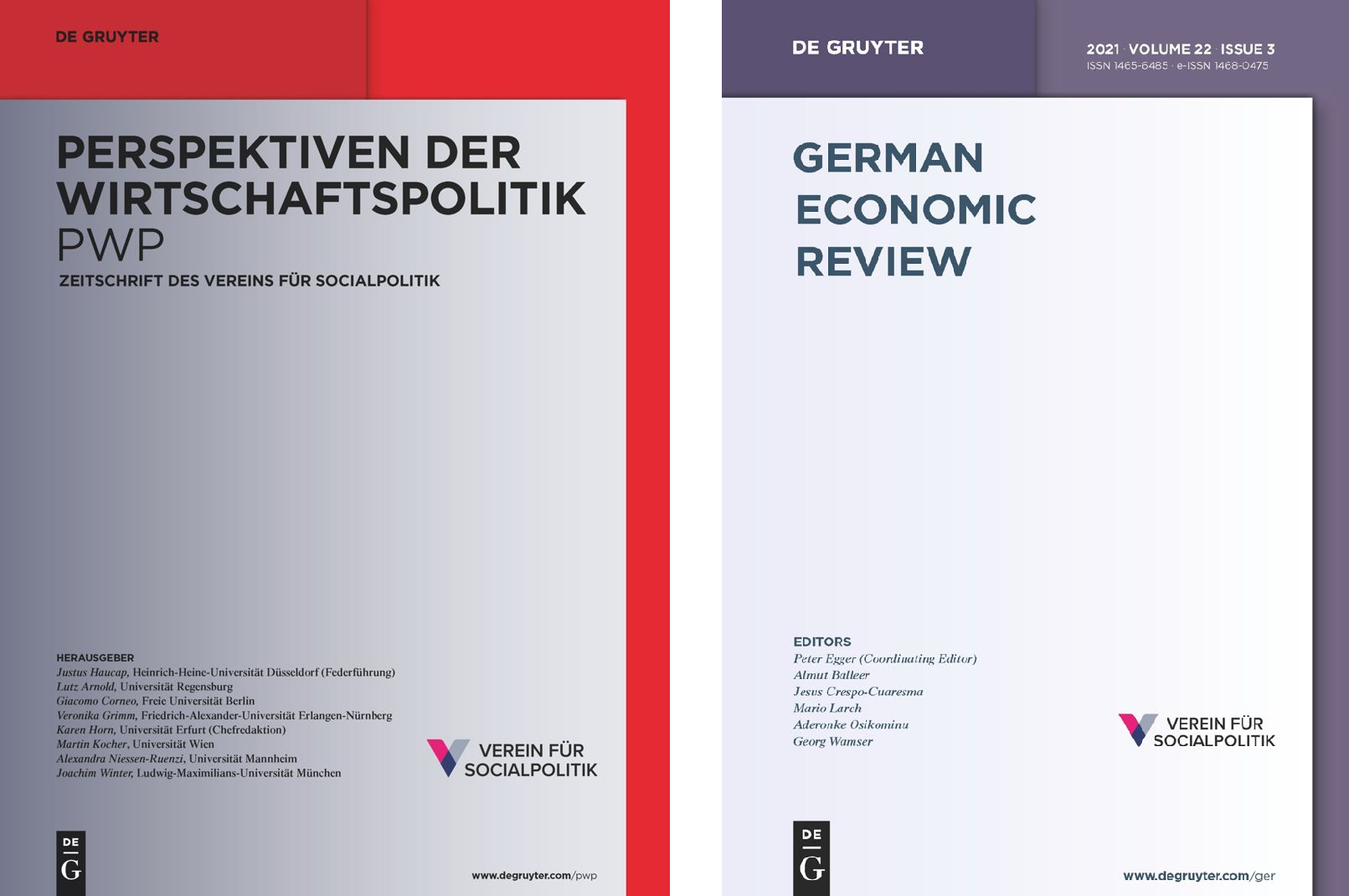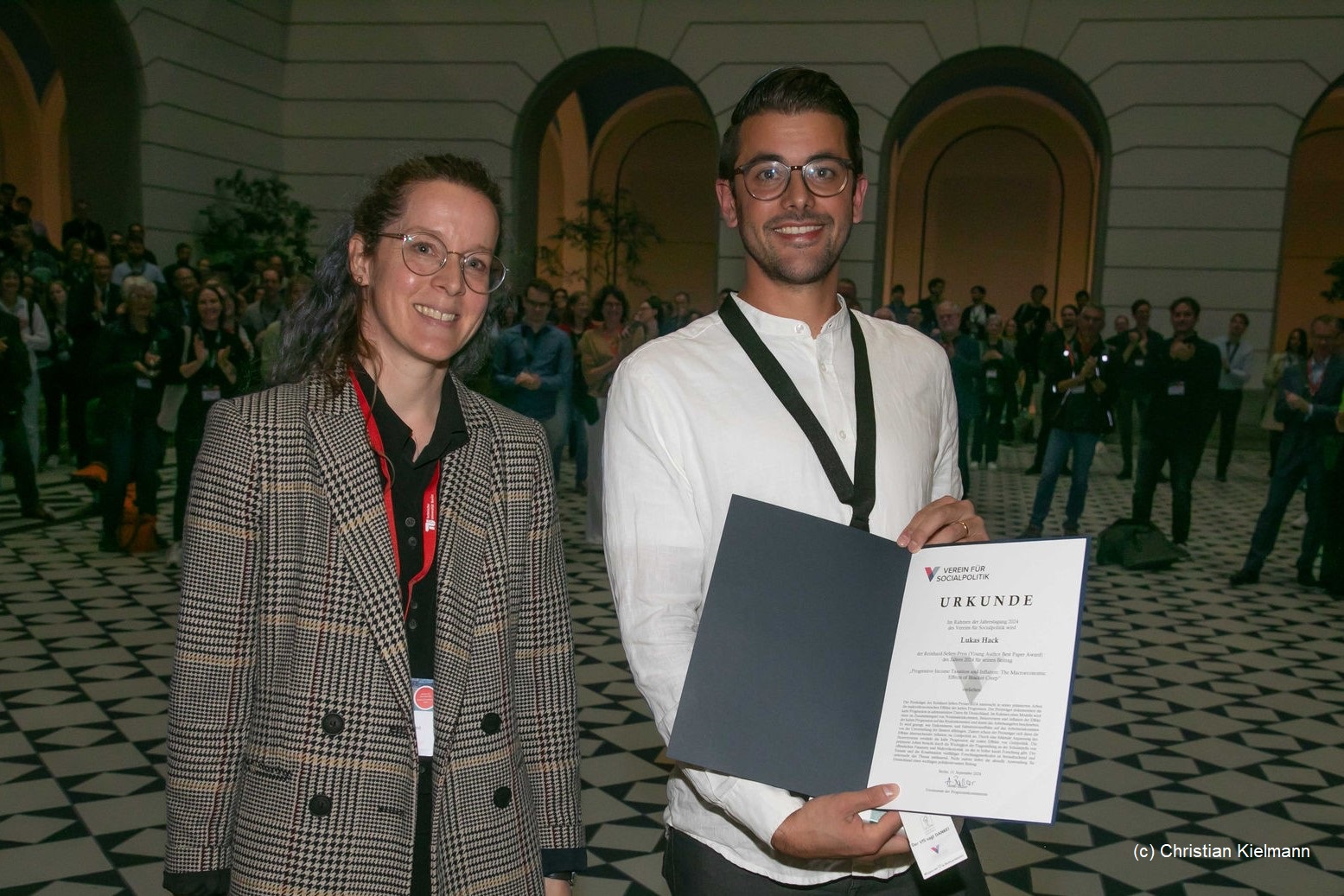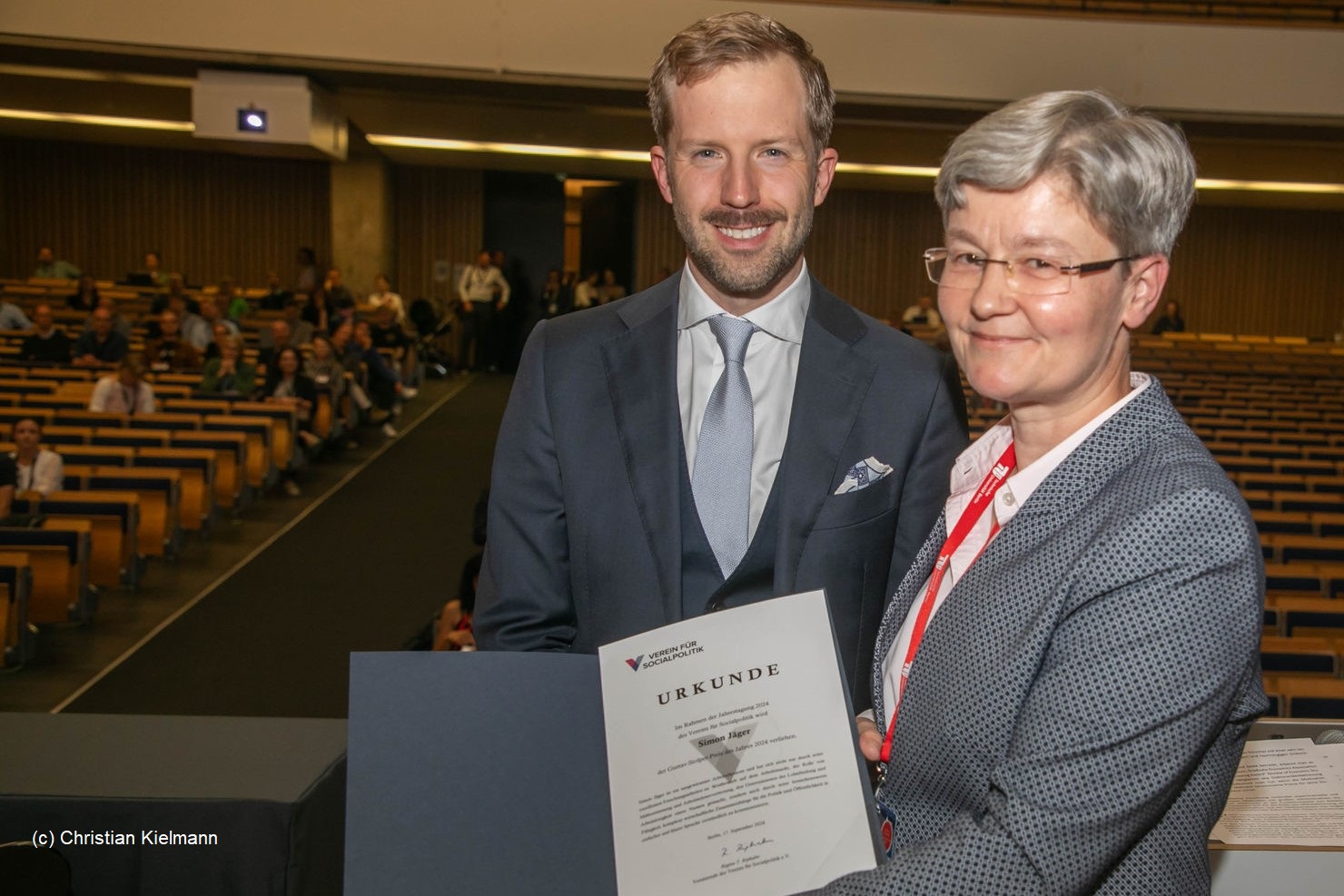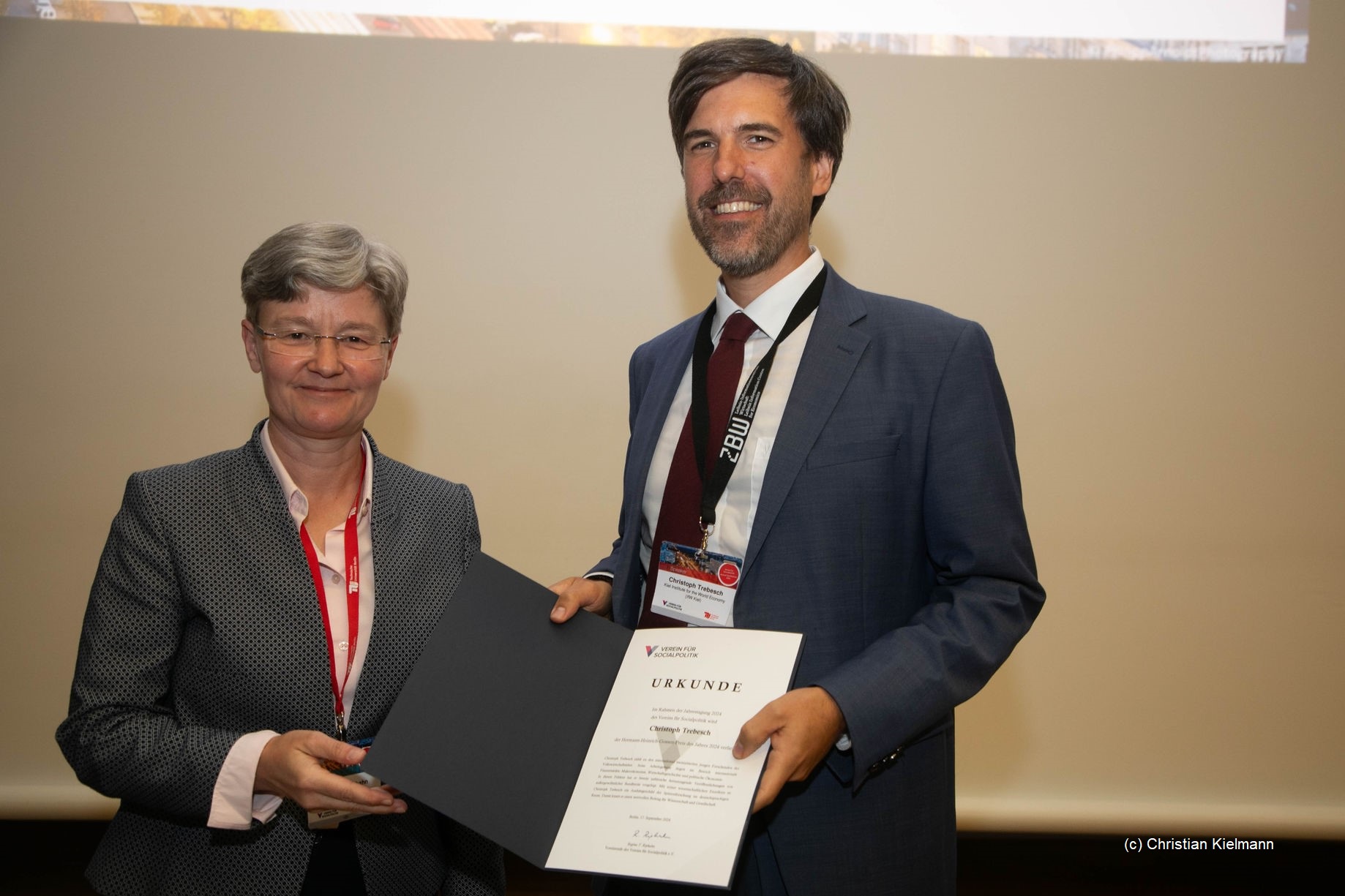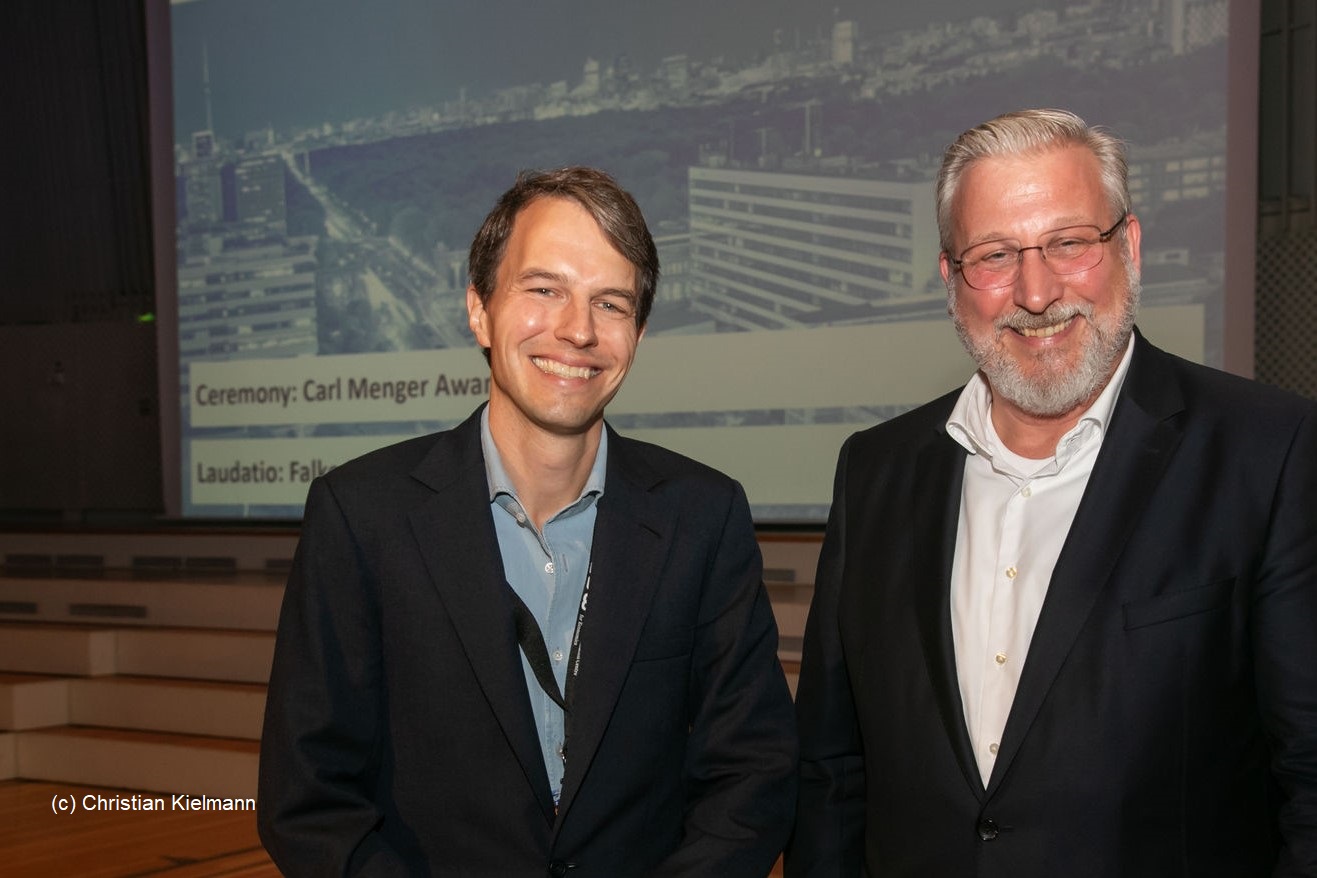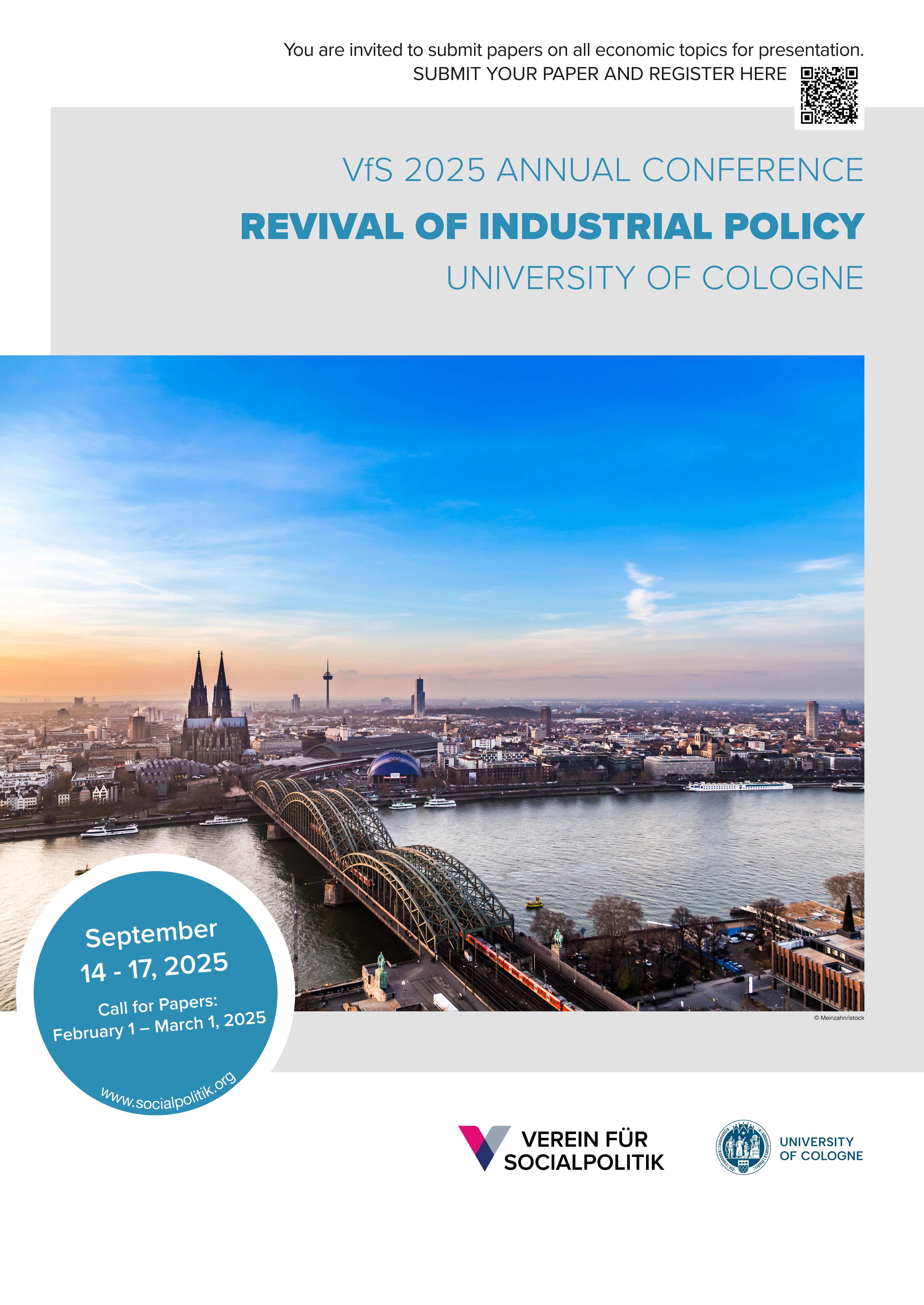Dear Members of the Verein für Socialpolitik,
As this year draws to a close, I would like to inform you for the last time as chair about current developments in our organisation.
We look back with gratitude and satisfaction on an exceptionally well-attended annual conference, which we were able to organise at the Technical University of Berlin with 855 participants. The local organising team (Dirk Engelmann and Radosveta Ivanova-Stenzel) as well as the core conference leader (Bernd Fitzenberger) and the open conference leader (Almut Balleer) together organised a very attractive setting for a great programme. We also managed financially to bridge the sudden loss of our largest single donor.
In 2024, the Management Board was intensively involved in negotiations to extend the contract with the publisher of our association journals. At the beginning of 2025 we will switch to a new publishing model - with generous financial support from the ZBW. The articles of both the German Economic Review and the Perspektiven der Wirtschaftspolitik will be made available on an open access basis. This should further increase the reach and visibility of the journals. The Association is also moving with the times in social media. We recently activated our account on BlueSky and will (initially) use this channel in addition to X and LinkedIn.
As my term of office comes to an end, I can look back on four eventful years on the Select and Extended Board, including the last two as chair. I would like to thank all my colleagues for their trusting and pleasant cooperation, without which such an association would not be possible. We have an excellent, practical and proactive team in the Association’s office who put in many, many hours of overtime for the benefit of the Association. I hope that in the future we will be able to alleviate some of the pressure by employing another part-time member of staff. I would like to thank Karolin von Normann and Claudia Schwartz for their great and dedicated work.
On 1 January 2025, Klaus Schmidt will take over the chairmanship of the Association and with him a new Board. The Association is in good hands! Please note that the next Annual Conference will take place at the University of Cologne from 14 to 17 September 2025; the theme could hardly be more topical: Revival of Industrial Policy. I look forward to meeting you in Cologne and wish you all a harmonious end of the year.
Best wishes,
Regina T. Riphahn
Chairwoman of the Verein für Socialpolitik










